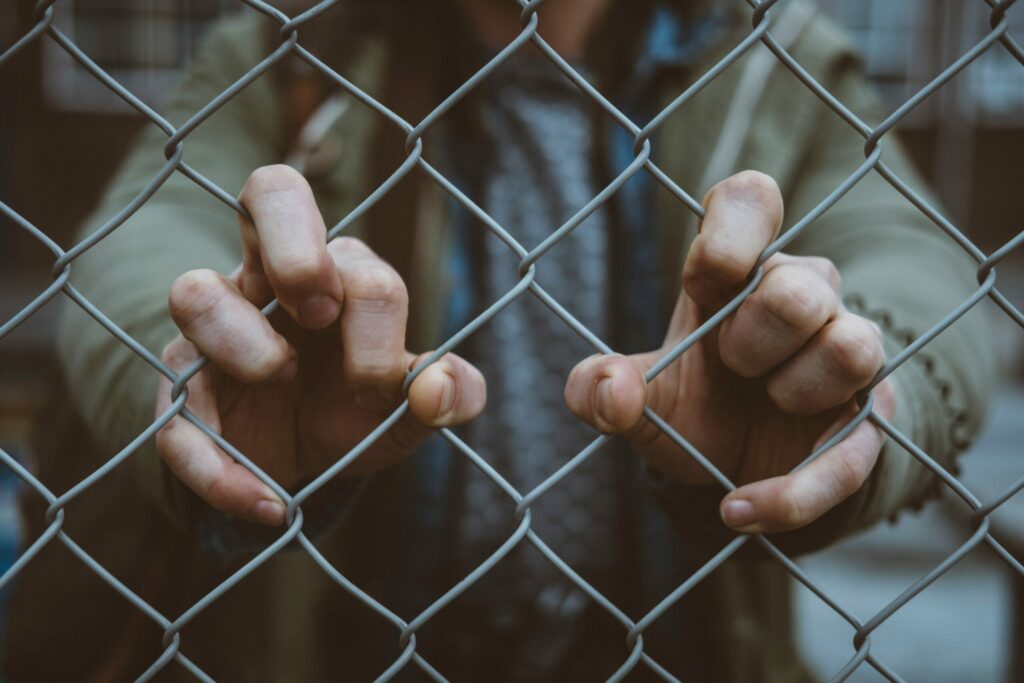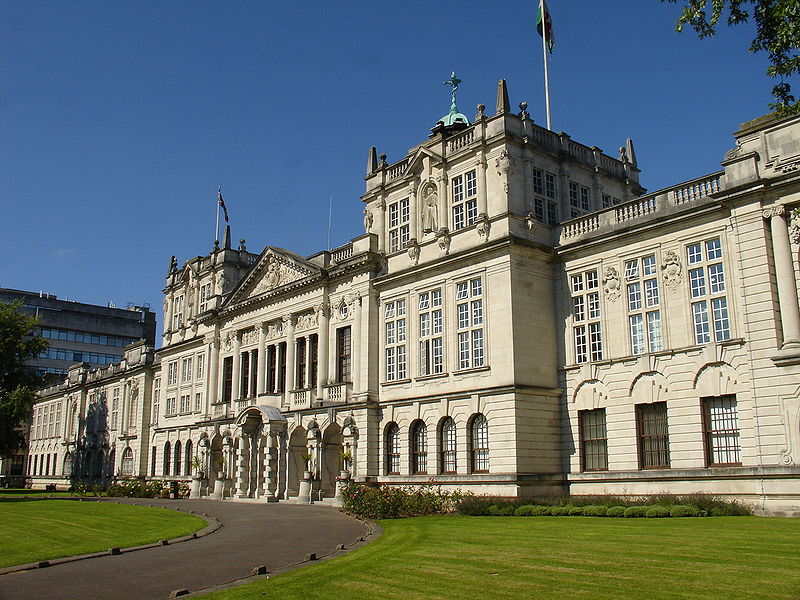On the occasion of Refugee Week, Hayley Richards reflects on the impact of a decade of hostile environment in the UK.
Imagine having to flee your home in fear of your life. Fear of war or conflict, persecution because of your politics or maybe because of your faith or nationality.
Now imagine there is no legal or safe route out. No embassy, no visa, no plane ticket, checkpoints at every border. Any journey you make will be dangerous, expensive and will rely on strangers. You scrape together the money for the journey. You walk for 3 days to meet the people smugglers who provide your only route out. They take your money, your phone and your papers. For a week or more, you lose track of time, you are bundled under the cover of darkness from one vehicle to another. You leave dry land. You are floating, trapped in a metal box in the bowels of a ship. You think this journey will kill you. You pray. There are other people crying. You wake up, the back of the truck is open, it is dark and there is no one around. You emerge in an unfamiliar place in the middle of nowhere.
You are taken away in a police car. A blur of immigration offices. They take your fingerprints. There is an interpreter but you are not sure if they are translating what everyone is saying. So many questions. Where have you come from? Which countries have you passed through? Where are your papers? How did you get here? How many others? Who helped you? Why did you leave? Where is your family? You are crying. You are so tired and you can’t think clearly. You are worried about your wife and child. They will think you are dead.
You are an asylum seeker, a Home Office Reference Number. Government policy dictates that you are met with hostility, systemic racism and mistrust.
You are taken to a house in another city. You share this with 6 other men who all speak different languages. The housing manager gives you a piece of paper with some phone numbers on it. A new journey where, once again, your fate lies in the hands of others. The words human, person, man no longer apply to you. They say you are illegal. You are an asylum seeker, a Home Office Reference Number. Government policy dictates that you are met with hostility, systemic racism and mistrust. This journey is like a sickness that will never pass. You travel in circles while your asylum claim is processed, refused and appealed.
You are not permitted to work. The days are long. You are supported by kind people from the community. You walk the 6 miles to and from the English class because the £5.83 per day you are given to live on is not enough to pay for the bus. The roof of your house is leaking and there is mould growing on the wall but you don’t report this in case it affects your asylum claim. Immigration Officers come in the middle of the night and take another man from the house. You cannot sleep. Every time you hear a door slam you think they have come for you. You haven’t seen your wife and child in 2 years. Whenever you think about them you feel sick. You are the victim of a racist attack in the street but you are afraid to report it to the police in case it affects your asylum claim. You do not go to the hospital in case they contact the Home Office. You feel like everyone is watching you. You go to the GP who gives you some medication which makes you feel numb. You are alive but not alive.
This is the ‘hostile environment’ introduced in 2012 by then Home Secretary Theresa May, with the aim of making life unbearably difficult in the UK for those who cannot show the right paperwork. Or, as she said at the time: ‘The aim is to create, here in Britain, a really hostile environment for illegal immigrants.’
In the decade that followed this ‘hostile environment’ has systematically dehumanised vulnerable people who dared to hope that Global Britain would be a place of sanctuary. Systematically preventing people seeking asylum and other undocumented migrants from accessing essential services like healthcare, education or the police. Enlisting doctors, teachers and police officers to conduct immigration checks and share data with the Home Office. Fuelling a culture of suspicion and undermining trust in vital public services.
Discussions and debates that drive Wales forward.
Join Wales’ leading independent think tank.
The asylum system is broken. Under the current Home Secretary, delays in the system have tripled and the backlog of undecided cases has increased by tenfold in the last 5 years. After 10 years, when we thought things couldn’t get any more hostile, we have seen people fleeing war and persecution forced to live in disused, military barracks. We have seen the Nationality and Borders Act become law introducing a two tier asylum system meaning that people who arrive in the UK via irregular means will have less protection and support. The Law Society has concerns that the Act is incompatible with international law, including the Refugee Convention 1951, and damages access to justice.
For almost all people fleeing desperate circumstances, there is no application form that exists and no process to facilitate a safe, regulated journey. In reality, unless you are Ukrainian or Afghan there are no such routes.
We have seen the first attempt to offshore our responsibilities for people seeking sanctuary in the UK to Rwanda. Bishops from the Church of England warned that ‘This immoral policy shames Britain’ and the UNHCR said the scheme was ‘contrary to the letter and spirit of the Refugee Convention’.
Meanwhile, in Wales, a small, brave country committed to becoming a globally responsible nation, there is cross party consensus for a vision of Wales as a Nation of Sanctuary. Modelled on the City of Sanctuary movement to embed welcome and compassion across society, it is no coincidence that this vision began in 2012 as a direct response to the hostile environment and in recognition that Wales would try to mitigate its impacts on refugees and people seeking asylum dispersed here.
While Wales does not have devolved powers over immigration, powers under education, health, housing, social services and transport can all be used to make a difference to people’s lives. Welsh Government has a policy of ‘integration from day one’ to ensure that people receive the support and help they need to settle in as soon as they arrive, regardless of which route people took to get here.
Welsh Government’s Nation of Sanctuary Plan, endorsed by the UNHCR, includes measures to ensure access to education, healthcare, language, employment and legal support, plus a multilingual information portal. Additional measures include providing people in asylum accommodation in Wales with access to wifi, homelessness support and access to discretionary funding in times of destitution.
Alongside services to mitigate, Welsh Government has used its voice to make absolutely clear that we operate differently here. We have a rights-based, people-centred approach. Welsh Government opposed the use of the Penally military barracks as asylum housing and opposed the Nationality and Border Bill and First Minister Mark Drakeford said that the Rwanda removals were ‘a cruel and inhumane response to those seeking safety and sanctuary in our country. It is in stark contrast to Wales’ position as a nation of sanctuary.’
For already traumatised people, the UK asylum system can cause depression, paranoia and drive some to suicide.
Wales’ global responsibility goal, its Nation of Sanctuary vision alongside practical measures to welcome, support and defend people make Wales a country to be proud of on the global stage.
Remember the man who had to flee his home? It is fellow humans that are impacted by the hostile environment – desperate people who have fled unspeakable horrors – fathers, husbands, sisters, daughters. People who should be nurtured and cared for.
The resilience people need to make the journey to the UK needs to be coupled with enough strength to survive its hostile asylum system. Travelling around in circles, with no end in sight, constantly watching your back and the threat of deportation hanging over your head will take its toll. For already traumatised people, the UK asylum system can cause depression, paranoia and drive some to suicide. Let us not forget Eyob Tefera who took his own life in Swansea after his asylum claim was refused for the second time. Let us not forget Mustafa Dawood, who was refused asylum and who died after falling from a roof while fleeing from Immigration Officers in Newport. The mitigation measures put forward by Wales as a Nation of Sanctuary were no match for the devasting impacts of the hostile environment on Eyob and Mustafa.
It doesn’t have to be like this.
Let’s travel forward another decade to 2032. Imagine this is a time of profound change in which old institutions fall away and are replaced by new ones. In which change previously thought unimaginable becomes unstoppable.
In 2032 imagine a world in which we all, from schools to universities, institutions to businesses, individuals, communities and governments, have worked together to create an immigration and asylum system that enables us all to thrive, where safe and regular routes are expanded, where people are welcomed and supported.
Imagine a county which celebrates our different languages, cultures and beliefs, a country where we can all share our skills and make a valued contribution, a country respected across the globe for its humanity as a nation of global citizens who show kindness and solidarity with our friends and neighbours in distant lands.
Imagine the next 10 years are a decade of healing and welcome in which immigration and asylum systems are deliberately redesigned so that the whole of the UK becomes a Nation of Sanctuary! That would be a decade to be proud of.
All articles published on the welsh agenda are subject to IWA’s disclaimer.





